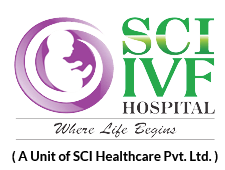In vitro fertilization (IVF) is a remarkable medical advancement that has helped countless individuals and couples realize their dreams of parenthood. However, like any medical procedure, IVF comes with potential side effects and risks that individuals should be aware of. In this blog, we will explore the most common side effects associated with IVF and offer insights on how to manage them.
- Ovarian Hyperstimulation Syndrome (OHSS)
One of the primary concerns with IVF is OHSS, which can cause symptoms ranging from mild abdominal discomfort to severe bloating and nausea. To minimize this risk, your healthcare provider will monitor your hormone levels closely during treatment.
- Multiple Pregnancy
IVF can lead to a higher chance of multiple pregnancies, such as twins or triplets. While some individuals may view this as a positive outcome, multiple pregnancies can pose greater health risks and complications for both the mother and babies.
- Emotional and Psychological Distress
The emotional toll of IVF can be significant. The uncertainty, stress, and disappointment associated with failed cycles or negative results can take a toll on mental well-being. It’s essential to seek emotional support and counseling to cope with these challenges.
- Physical Discomfort
IVF involves multiple injections and frequent ultrasounds, which can cause physical discomfort. Bruising, soreness at injection sites, and bloating are common side effects. Proper guidance on administering injections can minimize these issues.
- Risk of Ectopic Pregnancy
The risk of ectopic pregnancy is slightly higher in IVF procedures. An ectopic pregnancy occurs when the embryo implants outside the uterus, usually in the fallopian tubes. Early detection and treatment are crucial to prevent complications.
- Ovarian Torsion
Ovarian torsion, although rare, is a condition in which the ovary twists on its own blood supply. This can cause sudden, severe abdominal pain and requires immediate medical attention.
- Medication Side Effects
The medications used in IVF can have side effects such as mood swings, headaches, and breast tenderness. It’s important to communicate any discomfort to your healthcare provider, who can adjust your treatment plan if necessary.
- Financial Stress
The costs associated with IVF can be a source of stress for many individuals and couples. It’s crucial to plan your finances and explore available insurance options to mitigate this burden.
Conclusion
While IVF is a life-changing fertility treatment, it’s not without its potential side effects and challenges. It’s vital to go into the process with a realistic understanding of these risks and side effects. Moreover, choosing an experienced and compassionate healthcare team can make a significant difference in managing any complications that may arise. Remember, each individual’s experience with IVF is unique, and for many, the potential side effects are a small price to pay for the chance to achieve the dream of parenthood. Your healthcare provider will guide you through the process, address your concerns, and ensure your safety throughout the journey.



